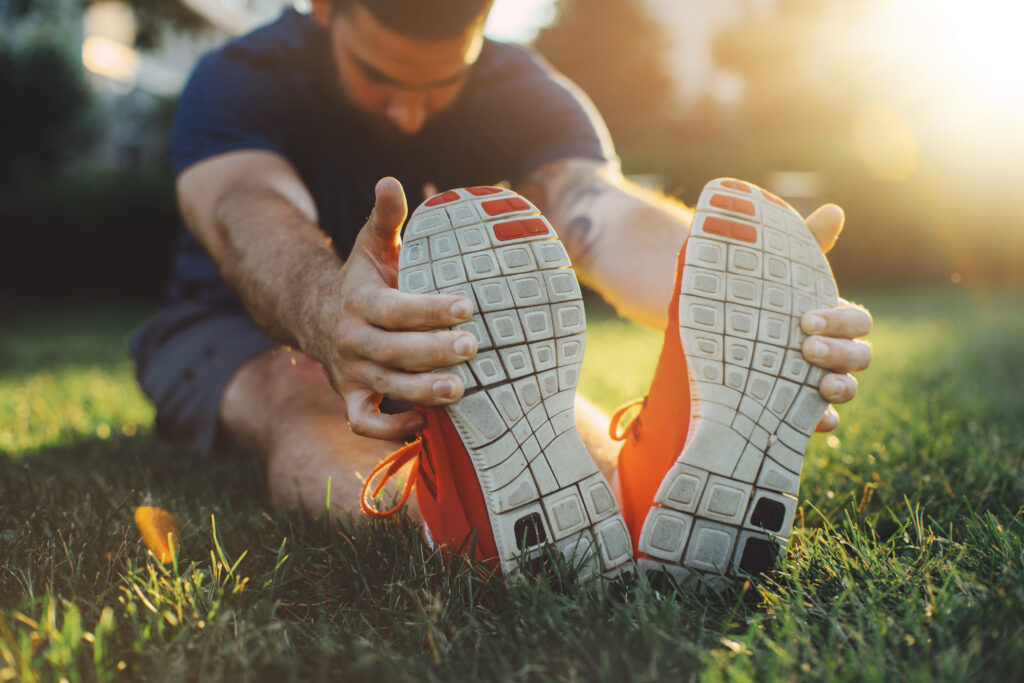Can Exercise Help in Drug Addiction Recovery?

An appropriate exercise routine is typically one of many ways you can improve your mental and physical health. Furthermore, exercise enhances your bones and muscles. It helps reduce the threat of cardiovascular diseases such as heart attack, arrhythmia, etc. Also, regular exercise can limit the chances of developing certain cancers, metabolic syndrome, and Type 2 diabetes, and so on.
Although rehabilitation is effective, it does not ensure sobriety. While recovering from substance abuse problems, people tend to deal with lots of phrases that can trigger going back to old habits and cravings. For a drug addict, such stages can trigger old habits of abusing drugs, taking excess alcohol and other associated behavioural issues. Some people still experience relapse after completing their treatment.
Common addiction treatments often involve talk-therapy sessions or counselling. This is aimed at helping people with addiction discover why they continuously engage in such addictive behaviours. Even with better efficient ways of managing the feelings underlying addictive behaviours, the dangers of relapse are still imminent. All of these are the reasons why many experts recommend talk therapy sessions during recovery.
While these concepts seem beneficial to those recovering from addiction, some prefer better direct concepts that help physically. In contradiction to the emotional or mental aspects of addiction, it’s believed that exercise hastens quick recovery. Also, some believe that regular exercise is helpful as a backup therapy to counselling and also helps in cravings management.
Over time, regular exercise has been acknowledged as a self-help instrument that acts as a support system for people recovering from addiction. However, recently it has been confirmed that exercise is an addiction treatment on its right.
Are you recovering from an addiction? Are you worried about ways to help boost your addiction recovery? This article will put you through on how you can recover from addiction with few exercise routines. It also discusses the benefits that exercise holds for people recovering from addictions.
Related article: Things to Avoid During Addiction Recovery
Can exercise help with addiction recovery?
Yes! Exercise helps you recover from addiction. However, being consistent with the exercise routine is essential as it’s the primary component that triggers quick recovery. Notably, exercise is increasingly becoming a significant part of most treatment schemes with proven effectiveness. It is also well recommended for treatment involving cognitive-behavioural therapy
It can also help you quit smoking. Exercise is effective when addressing physiological and psychosocial needs that only nicotine replacement cannot solve. This is often possible by preventing weight gain following withdrawal and by drastically reducing stress and negative feelings.
As your body is recalibrating and switching back to a life without drugs or alcohol, it is undergoing many changes. However, these changes may seem unbearable and awful during the transitional stage even with the positive benefits that come afterwards. This is a good reason why a steady exercise routine is always ideal for quick recovery and better results.
Even after the detoxification process ends, individuals can still experience depression, anxious moods, increased feelings of stress, or reduced energy. This is where regular exercise becomes significant as it helps deal with such occurrences. Individuals in recovery who regularly engage in physical exercise usually enjoy better sleep, energy improvement, reduction in stress.
People who abuse drugs or alcohol often disregard the importance of daily health and therefore wreak havoc on their well-being. It is essential to restore the physical damage of substance dependency, psychological damage, and the ruined mind-body connection. Exercise as a part of treatment for substance dependency serves numerous purposes. However, it’s only attainable over time, therefore consistency is key.
Related article: Sober Activities to Enjoy in the Summer
How can exercise help with addiction recovery?
Generally, there are many ways in which exercise can help you with addiction recovery. From stress reduction down to mental health improvement, exercise has proven to be very helpful in achieving better addiction recovery. Below are the ways through which exercise can help with addiction recovery.
Stress Reduction
When individuals overstep the mark into drug or alcohol dependence, then relieving stress after a long day becomes a problem. This often triggers excessive drug abuse or alcohol consumption in a bid to relieve stress. Over time, an increasing amount of drugs or alcohol consumption is always an attempt to reduce stress.
Usually, with continuous consumption, drug or alcohol intake becomes a direct source of stress. However, if such an individual should decide to go for alcohol or drug treatment, the stressors often take time to disappear. Luckily, stress reduction can be accomplished through any physical exercise or activity that increases the heart rate.
Stress is something you have to learn to manage successfully while recovering if you hope to stay sober and clean. During exercise, the brain releases some chemicals which serve as an agent that combat stress. Hence, establishing a healthy exercise routine that is applicable to relieving stress related to work or life will aid your quick recovery.
Related article: Ways a Recovering Addict Can Reduce Stress
It improves your sleep routine
Insomnia and restless leg syndrome are a common side effect of drug or alcohol addiction during the early recovery stage. Irrespective of the choice of drug – be it depressants or stimulants, the cessation of such substances can significantly affect your sleep. The inability to fall asleep, stay asleep, or desire to sleep during the day can make you feel tired and sluggish.
While the use of self-medication can be of help, utilizing a more natural remedy – exercise is ideal. An excellent exercise routine helps to enhance sleep both in the quality and length of sleep. It can also help to counter the urge to nap during mid-day.
In Canada, individuals who report having a sound sleep also report being more alive and able to combat daily life demands. Another way exercise helps to enhance sleep is by fixing your body’s temperature. The body temperature is always at maximum during and following an exercise session; and minimum during times of sleep. Generally, the body begins to cool at a faster rate than normal a few hours after exercise. This helps you sleep better.
Subsequently, this accelerated cooling process aids sleep more quickly and therefore renews the body’s strength. However, noticeable improvements in sleep relating to exercise may take weeks to become pronounced or acknowledged. Hence, do not be discouraged. Remember that your body is still undergoing recovery stages and adjusting to life without drugs or alcohol.
Increased Energy
An increase in your energy levels is essential during addiction recovery. However, achieving such a feat can only be possible through exercise. Expending your energy in the form of exercise is typically a way of gaining increased energy levels. Thus, to get more energy, you’ve to give more strength.
Basically, you have to give it away to keep it. During exercise, oxygen levels increase within the body, and blood is aggressively pushed through the heart.
Also, with constant exercise, the increase in oxygen levels within your body helps to enhance your body’s overall energy. Additionally, as your body becomes more cardiovascular and physically fit, performing your daily expenditures become easier. You complete tasks more effectively with less energy. This is a major reason why most people prefer early morning exercise.
During the early recovery stages from addiction, most people may not know how challenging life can be without the use of drugs or alcohol. Thus, integrating an exercise routine in the early recovery stage is ideal in helping newly clean and sober individuals.
Related article: What to Do After Rehab
Improved Mood
Mood changes often occur during the detoxification process from drugs or alcohol. Even after detoxification, mood changes can vary, most notably during the early recovery stage. One moment, you may feel on top of the world, and the next moment, you can feel lost and heartbroken.
However, these feelings are normal as your body is adjusting to life without drugs or alcohol. So, how can exercise help with addiction recovery and therefore boost your mood? During exercise, the body releases a chemical called endorphins. These chemicals produce positive feelings in your body, such as euphoria and happiness, which helps boost your mood.
Just like stress reduction, having an excellent exercise routine can improve your mood both in the short and long term. You don’t have to exercise for too long to achieve a steady improvement in your mood. An exercise routine of about 30 minutes per day is enough to experience significant changes in your mood.
Extended alcohol or drug use can mimic the symptoms and behaviour similar to most diagnosable mental health issues. Nonetheless, fluctuations in action and mood changes are reasonable in the early stages of recovery. Therefore, it’s essential to work with professionals with experience in addiction recovery necessary to understand the process and stages of recovery.
In addition, opting for a treatment centre that encourages exercise as a healthy skill is ideal for a smooth recovery.
Prevents exposure to killer diseases
With a proper exercise routine, you can always sit back with the confidence that you’re immune to killer diseases. Regular exercise helps protect and prevent you from being a victim of many ailments. These include:
- Depression
- Stroke
- Heart disease
- Diabetes
- Some cancers
- Osteoporosis
Exercise improves Mental Health
Regular exercise can allow you to continually exhibit sharp learning, thinking, and judgment skills as you grow older. Generally, having a good exercise routine and engaging in physical activity can help limit the risk of depression and mental health disorders. These issues are often attached to drug or alcohol addiction.
Engage yourself in a combination of aerobics and muscle-strengthening activities for about three (3) to five (5) times per week. You can extend the exercise duration from 30 to 60 minutes daily to achieve these mental health benefits.
Related article: How Do Drugs Affect Your Mental Health?
Exercises reduce the urge to abuse drugs and alcohol
With regular exercise, you can easily reduce the urge to take alcohol or smoke and therefore avoid drug-seeking acts. Usually, a combination of exercise and cognitive behavioural therapy can help you fight addictions like smoking, cocaine, and so on. The key is it gives your mind something else to focus on instead of your cravings.
Exercise, when merged with nicotine replacement, is more efficient at assisting smokers to prevent weight gain than ordinary nicotine replacement.
Since nicotine suppresses your appetite, people who try to quit smoking soon experience weight gain and therefore resumes smoking again. In fact, women who engage in active exercise regularly are likely to quit smoking successfully than women who do not.
Furthermore, smokers who exercise fiercely for ten (10) minutes often feel little to no cravings to smoke for. Regular exercise can help reduce marijuana cravings. Recently, a study undertaken in Canada supports the theory that exercise reduces marijuana cravings and usage in cannabis-dependent adults.
Related article: How to Handle Feelings of Guilt and Frustration After Relapse
Specific exercises that can help with addiction Recovery
Daily, millions of Canadians engage in leisure activities such as walking to and from work or jogging around their community. However, a whole lot of other varieties of exercises exist. Each has its specific health benefits for people recovering from addiction.
Below is a list of a few activities that can help you during and after your addiction recovery.
Swimming
Swimming can be an exercise for relaxation that eases stress and tension in the joints and muscles of the body. The calm and quiet water can reduce aches and soreness related to addiction withdrawal symptoms.
Yoga
Yoga is highly beneficial in leading a healthy lifestyle in many ways. It is widely acknowledged as an enjoyable activity that improves self-awareness, decreases pain, and reduces stress. Also, engaging in yoga sessions can help you generate energy and reduce cravings during addiction recovery.
Engaging in team sports
Engaging in team sports such as tennis, basketball, volleyball, and soccer is another way of improving your addiction recovery treatment. Participating in team sports during addiction recovery can help you establish new healthy relationships which may boost your mental health.
To sum it up
Conclusively, exercise is a very efficient component during and after the addiction recovery process. From yoga, swimming, team sports, aerobics, the list goes on and on. These are various exercises you can indulge in to boost your addiction recovery and lead a healthy life. Our experts can help you devise an exercising strategy to improve your recovery. Call Inspire Change Drug Rehab in Vancouver for addiction treatment programs.
Related article: Choosing an Addiction Treatment Centre


